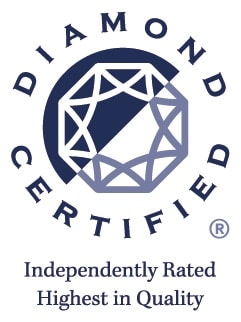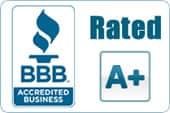The main water service line to a residential or commercial building is the foundation of that building’s plumbing. All of the water for that building must first pass through it, which makes it vitally important that certain rules are followed when repairing or replacing them. Some obvious, but some, not as much.
In this article, we will be discussing Copper main water lines, the pros and cons of using copper water line, and some rules you want to make sure you follow.
Why Use Copper Water Line?
Many older homes still have galvanized water service. The down side to that is that galvanized iron pipe rusts over time. Eventually the zinc coating wears away, and the pipe begins to deteriorate – both inside and out. The more it rusts, the smaller the inside diameter becomes. This will cause obstructions in the flow of the pipe, and in some cases can completely shut off the flow.
Also, since rust is not as structurally strong as the pipe, the pipe wall itself becomes compromised, eventually causing the pipe to spring a leak. This is the main reason to replace galvanized pipes with a material that does not rust.
Copper does not rust. The pipes do erode over time (as all metals do), but the fact that is does not rust, makes it erode at a much slower rate than galvanized. Also, the erosion does not create a byproduct that obstructs the flow of the pipe. Not to mention that fact that you do not have to worry about drinking or cooking with iron oxide (rust).
While, some people may argue that certain forms of plastic pipes do not rust, and is cheaper, copper is much stronger over time than most forms of plastic pipe, and is not subject to problems with the glue failing. The only real exception to that rule is schedule 80 pcv, which can be more expensive than copper water line.
Some Rules to Follow
If you are going to replace your water service with copper (or any other material, for that matter) there are some important details that you want to pay close attention to. Here are a few of them, in no particular order:
- Insure that the pipe is deep enough. As a rule, the deeper the better. Not only does this protect the piping from accidental “gardening” mishaps, but it helps protect the bulk of the pipe from cold weather.
- Keep the pipe diameter the same until the first major “branch”. This means that if you are using a 1” diameter pipe for your main service, continue using 1” into your home, all the way to the water heater branch. Too often I have seen a 1” main go down to 3/4” as it goes into the house. This is “cutting corners” and you will almost surely see the difference in the water flow to your home.
- Use a Pressure Regulating Valve (PRV). Unless your home has really low pressure (less than 60 psi), this is a must. Not only will a PRV keep high pressure from messing up all kinds of things in your home, but it will prevent high pressure “spikes”.
- Use a ball valve for your main water shut off, and keep it accessible. There is nothing worse than needing to turn your water off in an emergency, and not being able to. A 1/4 turn ball valve is always your best bet.
- Grounding. This is probably the most overlooked detail when installing copper water mains (as well as other materials). A grounding rod needs to be driven into the ground next to where the water main enters the home. A properly sized copper wire must be attached to the copper main, run to the water heater, where it is clamped to the cold side, clamped to the hot side, and brought all the way to the electrical box where it is attached to the proper ground point. The rod may also be placed next to electrical box, but the wire is run in the same fashion (to the hot, then the cold, ending at the main service).
The final detail, and perhaps the most important is to always use a licensed and bonded profession plumbing company to perform the work for you. A true profession will see to the details above, as well as the others we have not mention here (there are many more), to make sure the final product is a perfectly installed and efficiently functioning copper water main.
We, of course, recommend you call Allstar Plumbing.




